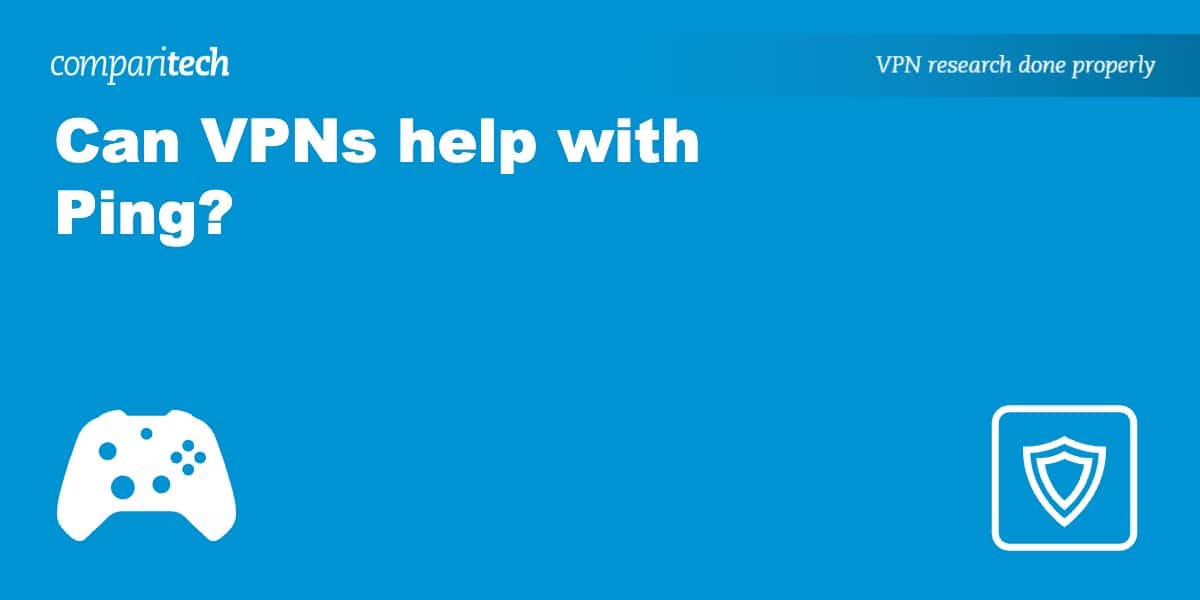Online gaming has become a popular pastime, but one common issue gamers face is high ping, which can lead to a frustrating gaming experience. The term “ping” refers to the time it takes for data to travel between your device and the game server. The higher the ping, the more noticeable the latency or lag in your gaming sesh.
Many gamers wonder whether a VPN can help with ping, and in this blog, we’ll explore the relationship between VPNs and gaming latency.
The Link Between Ping and VPNs
Ping is measured in milliseconds (ms), and lower ping values mean you’ll experience faster connections between your device and the game server. Various factors can affect ping, such as the physical distance between you and the server, the quality of your internet connection, and the network congestion on the route your data takes.
VPNs (Virtual Private Networks) are primarily designed to enhance online privacy and security by encrypting your internet connection and routing it through a secure server in a different location. VPNs can also help bypass geo-restrictions, access blocked content, and protect you from DDoS attacks.
Can VPNs Help With Ping?
While VPNs aren’t explicitly designed to improve ping, they can help in certain situations:
- Rerouting Data: VPNs can lower ping by providing a more direct route between your device and the game server. If your ISP’s routing is inefficient, using a VPN could lower latency. However, this is not guaranteed, and in some cases, a VPN might even increase your ping due to the extra hop your data takes through the VPN server, plus the encryption and decryption of that data.
- Reducing Throttling: Some ISPs throttle bandwidth for specific activities like gaming, streaming, or P2P sharing can cause high ping. A VPN can help bypass throttling by encrypting your data, making it difficult for your ISP to detect the type of traffic you’re generating.
- Accessing Closer Servers: If a game server is restricted to specific regions, a VPN can help you connect to a server closer to a specific location, potentially reducing ping. For example, if you’re in Europe but want to play on an American server, a VPN can help you connect to a US-based server with lower latency.
- DDoS Protection: During online gaming, Distributed Denial of Service (DDoS) attacks can cause high ping and even disconnect you from the game. VPNs can protect you from these attacks by masking your IP address and preventing attackers from targeting your connection.
WANT TO TRY THE TOP VPN RISK FREE?
NordVPN is offering a fully-featured risk-free 30-day trial if you sign up at this page. You can use the VPN rated #1 for gaming with no restrictions for a month.
There are no hidden terms—just contact support within 30 days if you decide NordVPN isn't right for you and you'll get a full refund. Start your NordVPN trial here.
Choosing the Right VPN for Gaming
If you’re considering using a gaming VPN to help with ping, choosing a service that prioritizes speed, performance, and server coverage is essential. Look for VPNs with:
- A vast network of servers allows you to connect to the closest server to your desired gaming location.
- High-speed connections and low latency ensure minimal impact on your gaming performance.
- Robust security features, including DDoS protection.
- Support for multiple platforms and devices, as well as simultaneous connections.
Remember that the impact of a VPN on ping will vary depending on individual circumstances, so it’s essential to test different VPN services to find the one that works best for your gaming experience.
FAQs
Will a VPN always improve my ping?
No, using a VPN doesn’t guarantee an improvement in ping. While it can help in certain situations, such as providing a more direct route or bypassing throttling, it might also increase ping due to the extra hop through the VPN server. Therefore, it’s essential to test different VPN services to find the one that best suits your situation.
Can I use a free VPN to improve my gaming ping?
While you can use a free VPN, it’s generally not recommended for gaming. Free VPNs often have limitations such as slower speeds, limited server locations, and data caps, which can negatively impact your gaming experience. For the best performance, opt for a premium VPN that prioritizes speed, server coverage, and security.
Do VPNs affect download and upload speeds for gaming?
Using a VPN can impact download and upload speeds, depending on factors like server distance, network congestion, and the VPN provider’s infrastructure. Some VPNs may slightly decrease your connection speeds due to the added layer of encryption, while others might offer comparable or even faster speeds than your regular connection.
How do I know if my VPN is helping with ping?
To determine whether your VPN is helping with ping, you can run a ping test before and after connecting to the VPN. Various tools for testing ping come built into games and devices, or you can use an online tool like Speedtest.net. Compare the results to see if your ping has improved, remained the same, or worsened with the VPN connection.
Are there any other methods to reduce gaming latency besides using a VPN?
Yes, there are several other methods to reduce gaming latency, such as:
- Connecting to the internet via Ethernet instead of Wi-Fi for a more stable connection.
- Closing background applications and downloads that might be consuming bandwidth.
- Adjusting in-game settings to lower graphics streaming and other bandwidth-intensive options.
- Upgrading your internet plan or hardware, such as your router or modem, for better performance.
Latency can be affected by multiple factors, and it’s essential to identify and address the specific causes in your situation to improve your gaming experience.







